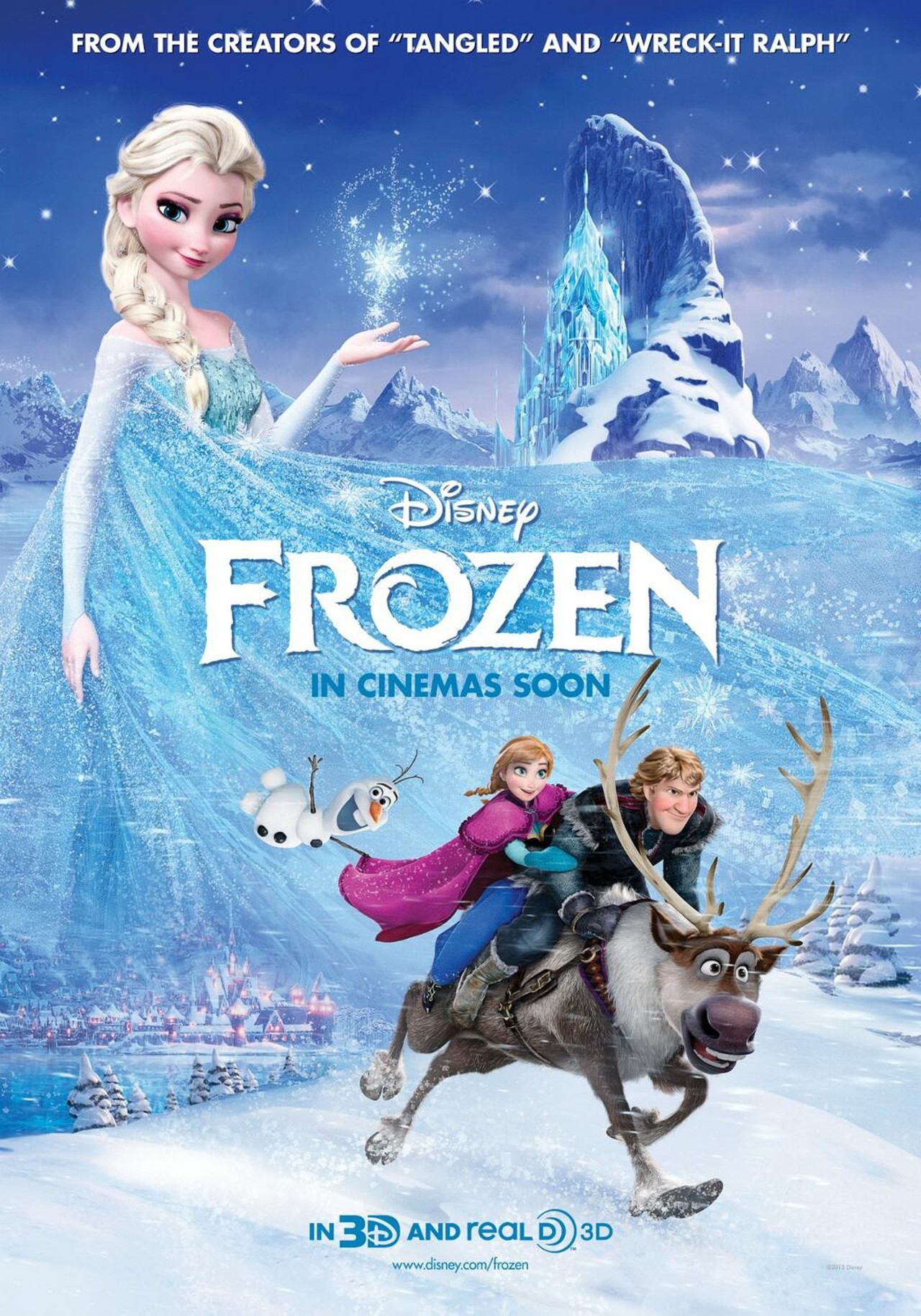 I finally joined the rest of the world and watched Frozen yesterday. We’d meant to catch it in the theaters, but it never happened, so it had to wait until we could buy it on Bluray. What did I think?
I finally joined the rest of the world and watched Frozen yesterday. We’d meant to catch it in the theaters, but it never happened, so it had to wait until we could buy it on Bluray. What did I think?
It was a cute movie and a lot of fun to watch. I really enjoyed the musical numbers and was encouraged that Disney might have found another great songwriting team to turn to for their music. The characters were funny and light, the animation was gorgeous, and it was an adventurous romp with enough humor to keep things clipping at a fast pace. Some great actions scenes peppered throughout.
However, one thing that pretty much stunk in the movie was the plot. Once you get beyond the music and the animation and the characters, and you start to look at what’s actually happening in the film, I couldn’t help but shake my head in confusion–which makes sense, considering how long the movie was in development limbo.
Warning: SPOILERS ahead (assuming there are still some people out there who also haven’t seen the movie.)
Break this down for me. You’ve got two sisters who love each other. One of them accidentally injures her sister one time with her magic, and so the solution is to keep the apart, shuttered away from each other and the rest of the world, for something like 15 years? My kids accidentally injure each other almost every day. According to this reasoning, they probably shouldn’t go out in public for the next two centuries.
But fine. Parents do strange things. Let’s give the movie a pass on that one. What happens next? At the sister’s coronation, she reveals she’s got this ice power, and it freaks everybody out, so she runs off to make an ice castle in a far off mountaintop, turning quasi-evil in the process and accidentally freezing her kingdom. What is she afraid of? I’m not sure. Bad . . . stuff happening? That already happened? I don’t know.
And there are trolls involved somehow in all of this?
Face it, people. The plot is one big mess from start to finish. Because let’s skip to the end of the movie–glossing over all the other bumps along the way–when the cure for Anna’s frozen heart is . . . an act of true love given by . . . herself? What? Where’s the character arc here? Anna was great all along. There was nothing she needed to do. She already loved her sister, a fact that had been established in several musical numbers. Her sister loved her. So why did Anna have to do something special to cure herself?
A mess.
AND EVEN AFTER THAT, you’ve got Anna cured, and Elsa still has all her evil uncontrollable powers, and everything’s looking grim, and then Elsa exclaims, “Of course! Love!” And just like that, she’s able to turn those powers to awesome use and make everybody love her.
I ought to try that trick when I’m writing sometime. If I paint myself into a corner I can’t get out of, I’ll just have a character shout out, “Of course! Groundhogs!” And then skip to the denouement. Problem solved.
That said, I still think the movie is a 7 out of 10. It works as a movie. Why? Because we’re not watching the movie for plot. The plot doesn’t drive the film. The characters, songs, humor, tone, and animation awesomeness drive the film. Criticizing the plot too much is like picking on a Saturday Night Live sketch because it wasn’t deep enough. Which made me realize that sometimes as an author, I try to cram too much into a book. I try to make it be everything to everyone, and sometimes it’s just better to know what you’re trying to be, and be excellent at that thing.
And that’s my movie review and writing thought of the day.

Related Posts
BryceGPT and the Future of Personaright
Now that I’ve got a subscription to Chat GPT, I’m able to make my own tailored GPTs. If you haven’t heard of this before, it essentially boils down to creating a prompt that Chat GPT will use as the starting point again and again. So instead of having to tell…
Movie Review: The Boys from Brazil
Denisa’s still away, so when it comes to what I watch, it’s been a much simpler process. Basically, I just skim through movies until I see something that looks intriguing at all, and then press play. (This isn’t to say it’s Denisa’s fault that it’s harder to figure out what…